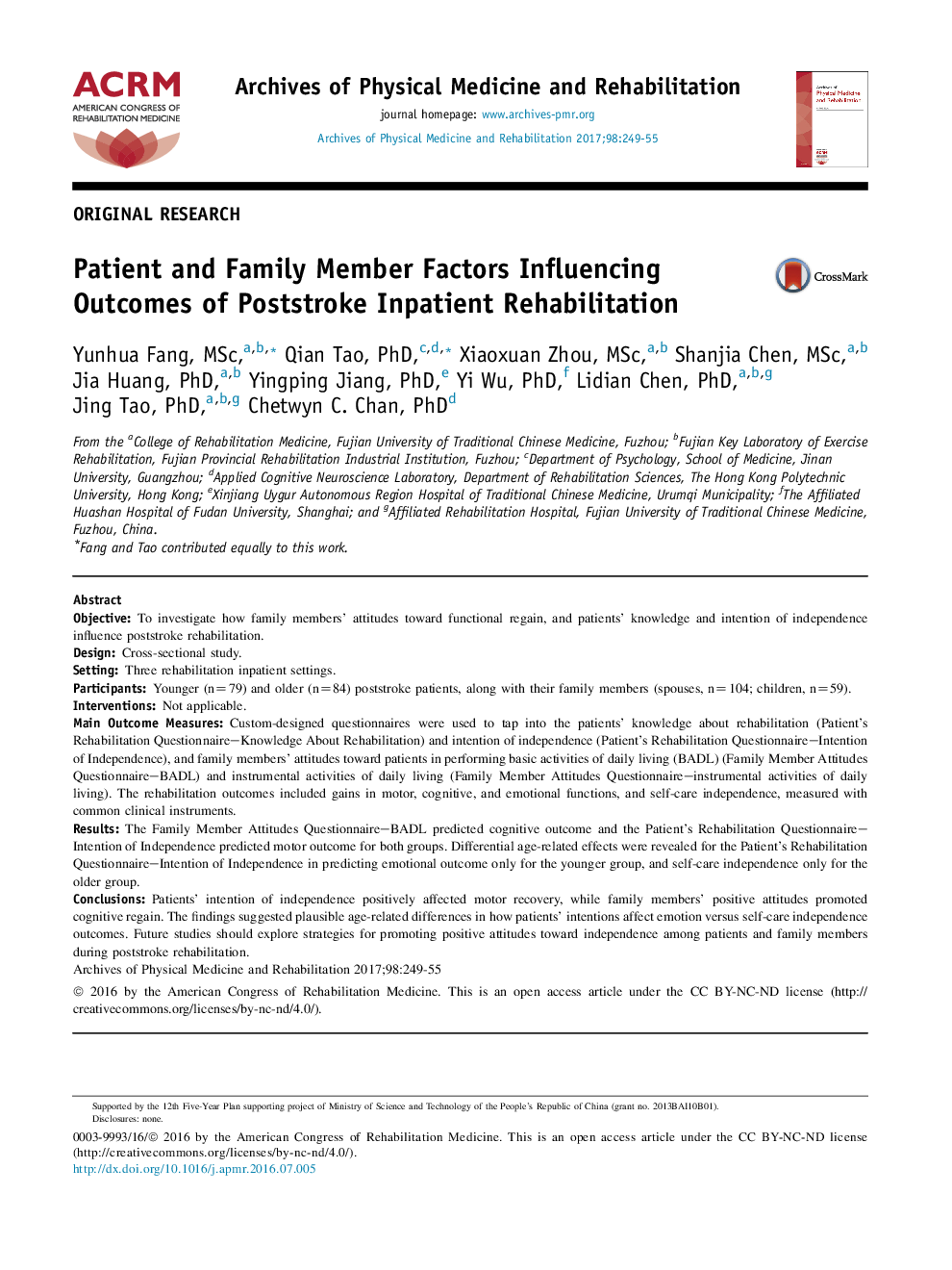| Article ID | Journal | Published Year | Pages | File Type |
|---|---|---|---|---|
| 5677940 | Archives of Physical Medicine and Rehabilitation | 2017 | 9 Pages |
ObjectiveTo investigate how family members' attitudes toward functional regain, and patients' knowledge and intention of independence influence poststroke rehabilitation.DesignCross-sectional study.SettingThree rehabilitation inpatient settings.ParticipantsYounger (n=79) and older (n=84) poststroke patients, along with their family members (spouses, n=104; children, n=59).InterventionsNot applicable.Main Outcome MeasuresCustom-designed questionnaires were used to tap into the patients' knowledge about rehabilitation (Patient's Rehabilitation Questionnaire-Knowledge About Rehabilitation) and intention of independence (Patient's Rehabilitation Questionnaire-Intention of Independence), and family members' attitudes toward patients in performing basic activities of daily living (BADL) (Family Member Attitudes Questionnaire-BADL) and instrumental activities of daily living (Family Member Attitudes Questionnaire-instrumental activities of daily living). The rehabilitation outcomes included gains in motor, cognitive, and emotional functions, and self-care independence, measured with common clinical instruments.ResultsThe Family Member Attitudes Questionnaire-BADL predicted cognitive outcome and the Patient's Rehabilitation Questionnaire-Intention of Independence predicted motor outcome for both groups. Differential age-related effects were revealed for the Patient's Rehabilitation Questionnaire-Intention of Independence in predicting emotional outcome only for the younger group, and self-care independence only for the older group.ConclusionsPatients' intention of independence positively affected motor recovery, while family members' positive attitudes promoted cognitive regain. The findings suggested plausible age-related differences in how patients' intentions affect emotion versus self-care independence outcomes. Future studies should explore strategies for promoting positive attitudes toward independence among patients and family members during poststroke rehabilitation.
